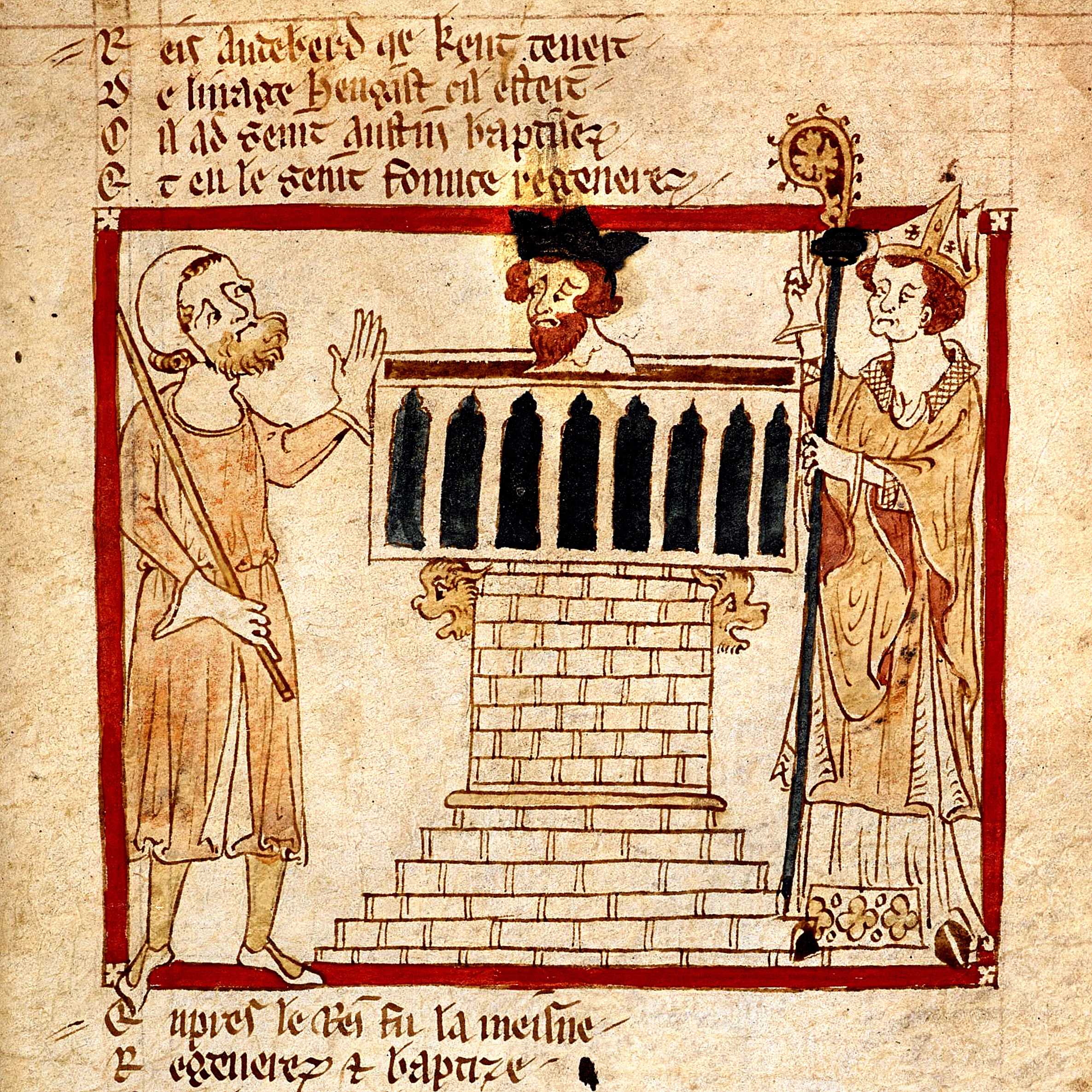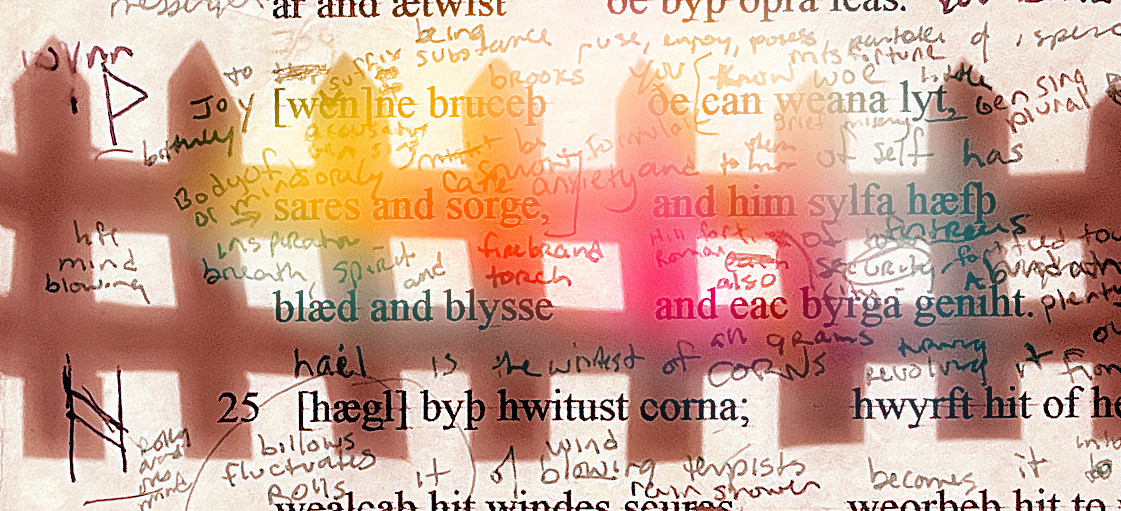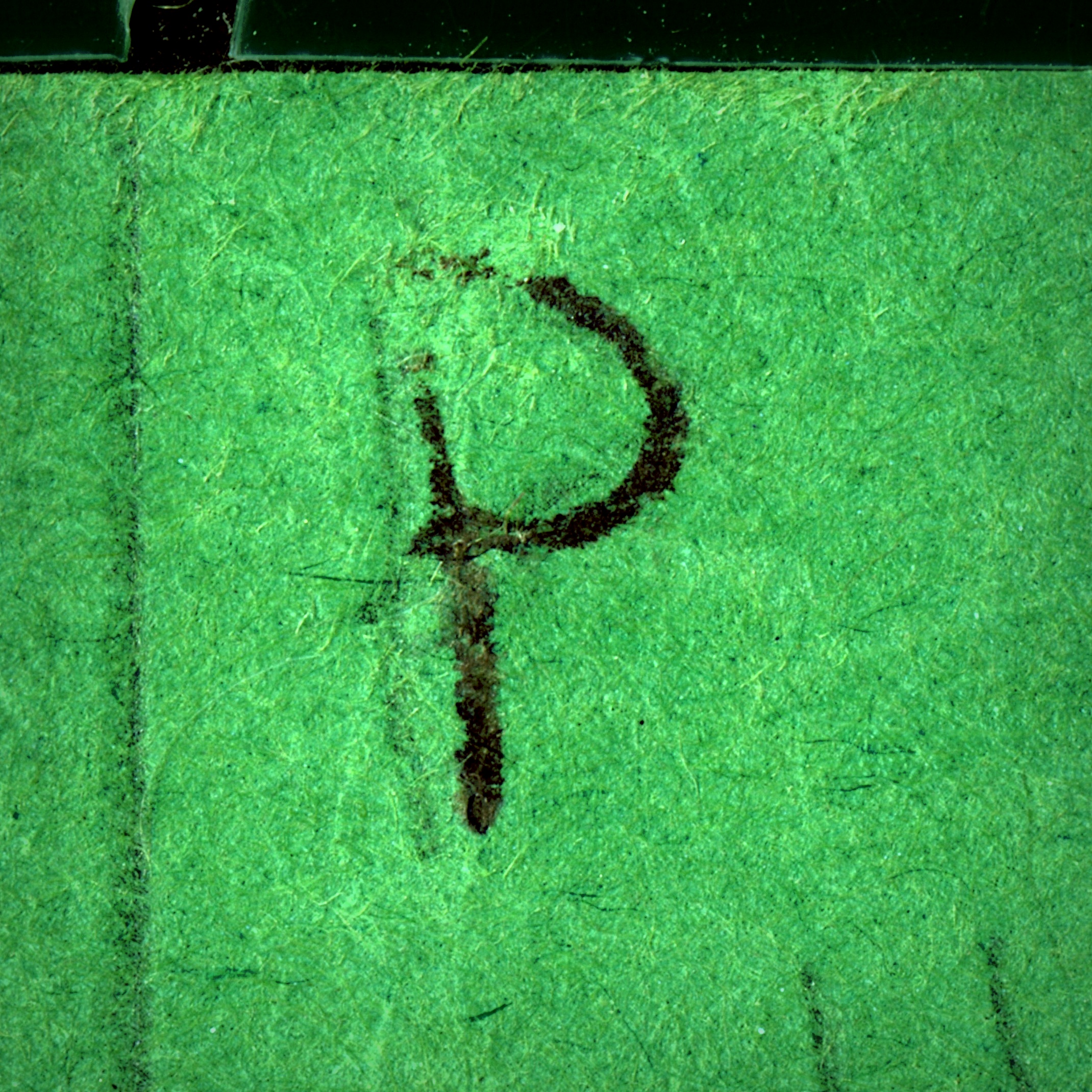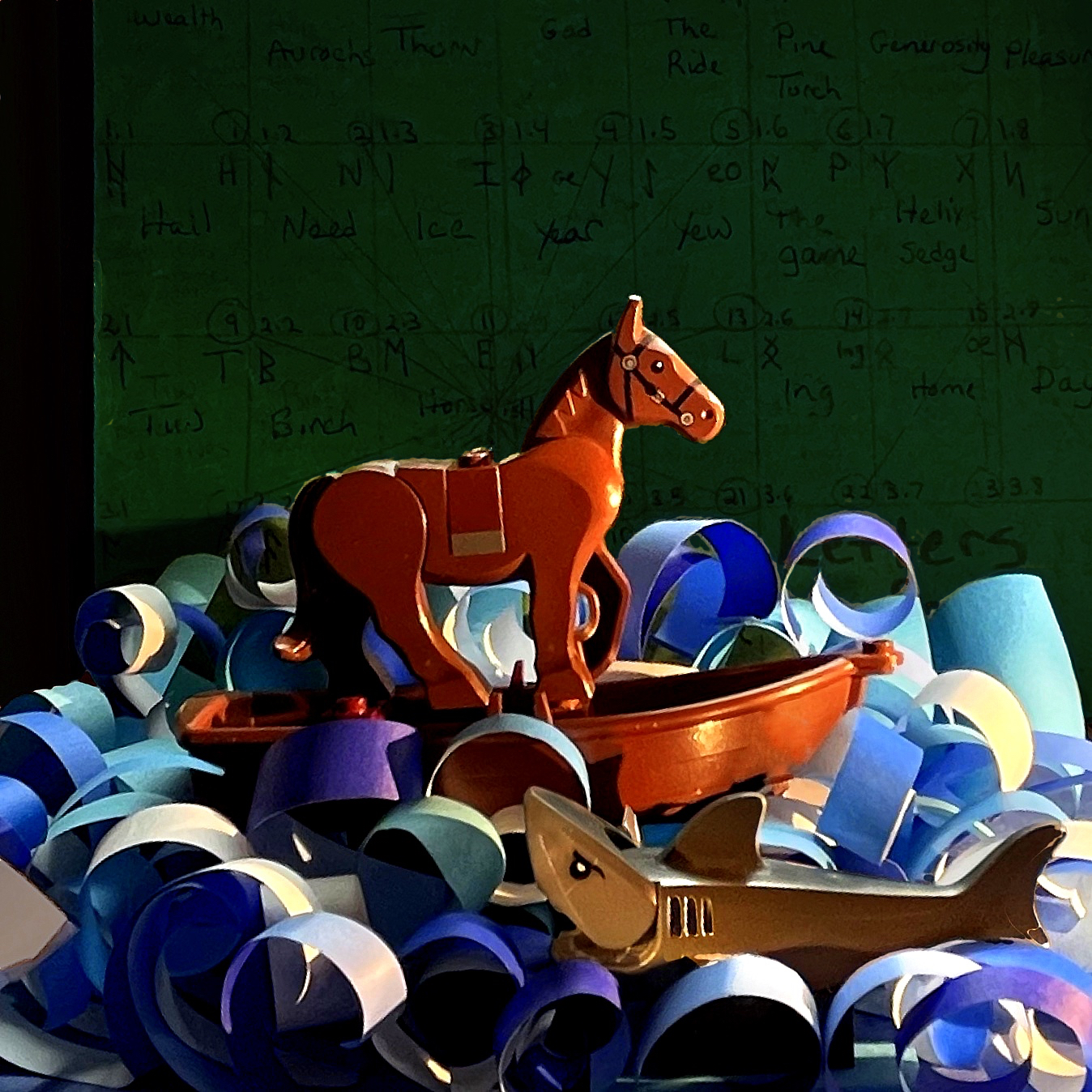 The Rune poem names two gods: Tiw and Ing. Three if you count Os which means god and describes Odin. If we set aside all the sacred trees, and we shouldn’t, we still have one more god mention: the holy king of heaven in the Year stanza, who must be the Christian god, unnamed. This Christian incursion into a poem full of non Christian deities, two named right out loud in answer to their stanza riddles, sometimes poses a different kind of riddle for Christian readers and translators. Perhaps duty bound to exalt their own, they often determine this is a Christian poem written by a Christian poet who would never allow heaven’s king to share an equal stage with other gods. This was a preference undoubtedly popular amongst Christian poets writing in Old English back in the day, so I can see the impulse. But I am here to encourage the … More
The Rune poem names two gods: Tiw and Ing. Three if you count Os which means god and describes Odin. If we set aside all the sacred trees, and we shouldn’t, we still have one more god mention: the holy king of heaven in the Year stanza, who must be the Christian god, unnamed. This Christian incursion into a poem full of non Christian deities, two named right out loud in answer to their stanza riddles, sometimes poses a different kind of riddle for Christian readers and translators. Perhaps duty bound to exalt their own, they often determine this is a Christian poem written by a Christian poet who would never allow heaven’s king to share an equal stage with other gods. This was a preference undoubtedly popular amongst Christian poets writing in Old English back in the day, so I can see the impulse. But I am here to encourage the … More
Tag Archives: Rome
Translating Wyn
 The Wyn stanza breaks with the usual byþ beginning: it starts with ne. Ne means not, or no. It can be used as a conjunction too, but here ne is neither this nor that. Old English is an inflected language meaning it uses different prefixes and suffixes to change a word’s grammatical usage in a sentence. The Wyn rune often shows up in manuscripts as a grammalogue (a single symbol used to represent an entire word) with a suffix attached, like this: ᚹne instead of wynne, meaning “of joy.” Th ne at the start of this stanza is a suffix, not a complete word and not a negation. Wyn starts out with a note of joy!
The Wyn stanza breaks with the usual byþ beginning: it starts with ne. Ne means not, or no. It can be used as a conjunction too, but here ne is neither this nor that. Old English is an inflected language meaning it uses different prefixes and suffixes to change a word’s grammatical usage in a sentence. The Wyn rune often shows up in manuscripts as a grammalogue (a single symbol used to represent an entire word) with a suffix attached, like this: ᚹne instead of wynne, meaning “of joy.” Th ne at the start of this stanza is a suffix, not a complete word and not a negation. Wyn starts out with a note of joy!
Usually the mood of Old English poetry is not joyfulness — it tends toward the gloomy, but there’s still plenty of wyn in it, particularly in the Rune Poem where the word wyn occurs six times. … More
ᚹ
 What is W? It looks like two Vs but its name says it is U doubled. It is a consonant, but in other times in select places, it is a vowel. What happened? Why do we have W?
What is W? It looks like two Vs but its name says it is U doubled. It is a consonant, but in other times in select places, it is a vowel. What happened? Why do we have W?
Before English was ever written down, there was a W sound in it. They had a letter for it too: the Wyn rune, ᚹ or Ƿ in manuscript form. This is how we would be writing our Ws, if the world had been otherwise: this is hoƿ ƿe ƿould be ƿriting our Ƿs if the ƿorld had been otherƿise. But it was not otherƿise. England had been occupied by Rome for 400 years, and when they left they didn’t take everything, they left their Latin behind all over the place. It wasn’t a switching off of the lights either when they went, people still considered themselves Roman for quite a long time after, and Latin kept a … More
Translating Rad
 Rad means riding on horseback, the ride itself. Sometimes it will mean the road, especially when found in a compound word. This stanza specifies it’s going to be a long ride ofer milpaþas. Mile paths. Long distances. These aren’t the paths between local settlements, this is a ride on the Roman roads built to take you somewhere far. The Roman roads had cylindrical mile stones set out every 1000 paces (mille in Latin means thousand, Roman numeral M). At these points the mile stones would tell the traveler how far to the next place, who’s the local boss, and sometimes the name of a person in charge of road repair. The Romans took their roads seriously.
Rad means riding on horseback, the ride itself. Sometimes it will mean the road, especially when found in a compound word. This stanza specifies it’s going to be a long ride ofer milpaþas. Mile paths. Long distances. These aren’t the paths between local settlements, this is a ride on the Roman roads built to take you somewhere far. The Roman roads had cylindrical mile stones set out every 1000 paces (mille in Latin means thousand, Roman numeral M). At these points the mile stones would tell the traveler how far to the next place, who’s the local boss, and sometimes the name of a person in charge of road repair. The Romans took their roads seriously.
The stanza points out that it’s easy to talk smack about the ride in a nice cushy recyde (a building) sitting somewhere sefte (soft) but when you are actually out there on a horse and … More
By Land and By Sea
 The medieval world was on the move. They traveled, all over the place and farther than you think. The Romans did it prior, they set up the whole show. They covered the lands around the entire Mediterranean with roads and sea routes, west and east of Rome, down the length of the Middle East, up the Nile, back down the Nile, all across North Africa and into Spain, all of Spain, France, across the channel and right up into Britain. This whole massive area is filled with people of infinite variety, their languages, their gods, their customs, their food, their everything, their all of it. And what are they doing? What are the people doing? They’re circulating. It’s all in motion, the whole place. Commerce and trade requires movement and the roads were busy, there’s a silk road to the east linking up to another massive trade structure, there’s ships sailing in all directions, traveling … More
The medieval world was on the move. They traveled, all over the place and farther than you think. The Romans did it prior, they set up the whole show. They covered the lands around the entire Mediterranean with roads and sea routes, west and east of Rome, down the length of the Middle East, up the Nile, back down the Nile, all across North Africa and into Spain, all of Spain, France, across the channel and right up into Britain. This whole massive area is filled with people of infinite variety, their languages, their gods, their customs, their food, their everything, their all of it. And what are they doing? What are the people doing? They’re circulating. It’s all in motion, the whole place. Commerce and trade requires movement and the roads were busy, there’s a silk road to the east linking up to another massive trade structure, there’s ships sailing in all directions, traveling … More


